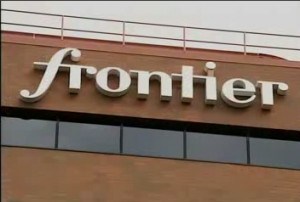
Comcast is in hog heaven thanks to Pennsylvania’s generous handouts from its corporate welfare system.
This week, Philadelphia residents are pondering why the city is hounding entrepreneurs and middle class, at-home workers with new taxes and fees while the nation’s largest and richest cable company, Comcast, is receiving enormous tax breaks and government handouts.
Welcome to the United Corporations of America, where taxpayers front at least $80 billion in corporate welfare handouts, according to the New York Times. Comcast is the fourth biggest recipient of corporate welfare in Pennsylvania, dwarfed only by a giant oil company and two Hollywood studios that have learned how to cash in by filming movies inside the Keystone State. The average Pennsylvanian contributes $381 in taxes per year that gets diverted to multi-billion dollar corporations. At least 18 cents of every dollar in the state budget is now spent on corporate welfare programs.
The budget busting handouts have continued without interruption, even during The Great Recession. Elected officials believe the only way to keep big business from picking up and moving to another city or state is to keep making them offers they cannot afford to refuse. But local taxpayers can’t afford to make up the difference. While the economy was melting down from 2008-2010, Philadelphia-based Comcast scored $18 million in tax abatements, credits, and other government handouts. At the same time, local officials faced with upside down city budgets enacted controversial new taxes and business fees on some of the city’s smallest businesses, ranging from bloggers, freelance writers, to independent contractors and consultants.
Pennsylvania is easily among the top-tier of states handing out corporate welfare. In 2011, the Commonwealth collected $4.89 billion in business taxes. But it promptly returned $4.84 billion in tax credits to the state’s biggest businesses. Government benefits for Philadelphia for-profits totaled over $200 million that year alone. Many of the state’s biggest companies receive nearly as much in tax credits, grants, and other benefits that they pay in state and local taxes. Some incentive programs are so broadly written, businesses doing “business as usual” qualify for enormous tax breaks.
Take, for example, Comcast subsidiary QVC. Pennsylvania’s “film incentive program” handed the home shopping network $7.05 million in tax credits just for hawking jewelry from studios inside Pennsylvania. It did not matter QVC had been pitching products from those studios before, during and after the subsidy program handed out the award. Comcast had no plans to move the studios either, but it pocketed the corporate welfare just the same.
While Comcast was building up enough financial resources to acquire NBC-Universal, Philadelphia’s city budget was in tatters. Officials looking for creative ways to boost the local tax base didn’t tap Comcast for the money. Instead, they declared bloggers were now required to get a “business license” to operate within city limits. In fact, the city argued, every person, partnership, association and corporation engaged in a business, profession or other for-profit activity within the city of Philadelphia must now file a Business Privilege Tax Return. The cost just to apply for the business license? $300. Sorry Nathanial, the lemonade stand has to close because you didn’t cough up the $300 before erecting the card table in the front yard.
 The “blogger tax” appeared to be sufficiently overreaching (thanks to excoriating coverage in the local media) to provoke the city to begin to phase it out, but no worries — Philadelphia has since found another source of revenue — Comcast? No, of course not. The real money is in taxing strippers. From The Philly Post:
The “blogger tax” appeared to be sufficiently overreaching (thanks to excoriating coverage in the local media) to provoke the city to begin to phase it out, but no worries — Philadelphia has since found another source of revenue — Comcast? No, of course not. The real money is in taxing strippers. From The Philly Post:
So Mayor Nutter’s effort to tax lap dances—which reached its, er, climax last week in a Philadelphia courtroom — might be somewhat sympathetic if it had been cast as a way to crack down on the general level of skeeviness in the city. After all, it’s a fairly common rule of economics that if you want less of something, just tax it. That’s the logic behind Nutter’s anti-obesity effort to put a tax on sugary drinks, after all.
But nobody’s making that argument. (To be fair, City Hall hasn’t made much of a public argument of any sort, with officials saying they can’t comment on pending litigation.) So we’re forced to assume that the city, always desperate for revenue, is simply finding new ways of taxing its citizens — going after strippers the way you and I might check the folds of the couch for loose change.
And since strip club attendees already pay the city’s amusement tax just to enter the strip club, it seems reasonable to conclude that asking them to pay again when they witness actual stripping is thus a direct tax on stripping itself. It’s a tax on work.
There probably are not enough deep-pocketed lap dancers inside the City of Brotherly Love to cover Comcast’s tax tab. Just for building its new headquarters in Center City Philadelphia, the company was awarded an extra $42.75 million in government subsidies. But it did not stop there. In 2011, the cable company received an extra $18 million in miscellaneous gratitude corporate welfare categorized generally as “assorted grants and credits.” No other Philadelphia business came close to competing with Comcast’s taxpayer-provided gift basket. In return, Comcast showed its gratitude to Pennsylvania by declaring itself a Delaware-based corporation that was exempt from paying the state’s corporate income tax.



 Subscribe
Subscribe

 The “blogger tax” appeared to be sufficiently overreaching (thanks to excoriating coverage in the local media) to provoke the city to begin to phase it out, but no worries — Philadelphia has since found another source of revenue — Comcast? No, of course not. The real money is in taxing strippers.
The “blogger tax” appeared to be sufficiently overreaching (thanks to excoriating coverage in the local media) to provoke the city to begin to phase it out, but no worries — Philadelphia has since found another source of revenue — Comcast? No, of course not. The real money is in taxing strippers.  AT&T has continued its efforts towards wireless industry consolidation with today’s announcement it has acquired Iowa-based Long Lines Wireless (formerly Cellular One of Iowa) for an undisclosed amount.
AT&T has continued its efforts towards wireless industry consolidation with today’s announcement it has acquired Iowa-based Long Lines Wireless (formerly Cellular One of Iowa) for an undisclosed amount.
 The cable operator upped the stakes late Friday reportedly threatening that if CBS does get removed, it will give up its coveted channel positions on Time Warner Cable indefinitely. In New York, WCBS occupies channel 2. In Los Angeles, KCBS is also on channel 2 and its sister station KCAL is on channel 9. In Dallas, KTVT is on Time Warner Cable channel 11. Low channel numbers have significant financial value to programmers, because it makes finding channels easier. Jeff Zucker from CNN has already expressed an interest is taking over channel 2 for CNN.
The cable operator upped the stakes late Friday reportedly threatening that if CBS does get removed, it will give up its coveted channel positions on Time Warner Cable indefinitely. In New York, WCBS occupies channel 2. In Los Angeles, KCBS is also on channel 2 and its sister station KCAL is on channel 9. In Dallas, KTVT is on Time Warner Cable channel 11. Low channel numbers have significant financial value to programmers, because it makes finding channels easier. Jeff Zucker from CNN has already expressed an interest is taking over channel 2 for CNN.
